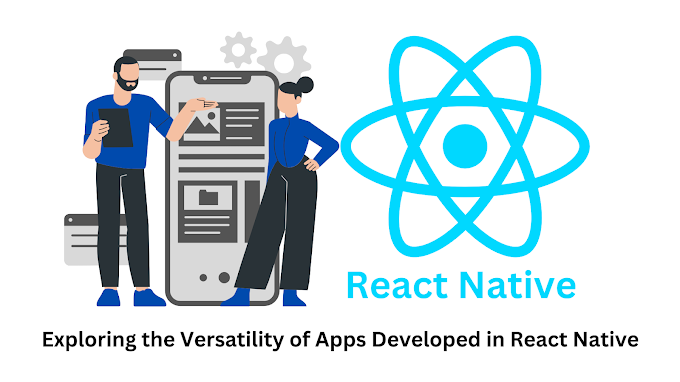React Native has emerged as a powerful and versatile framework for developing mobile applications that offer both efficiency and cross-platform compatibility. In this blog post, we'll delve into the world of React Native apps, highlighting their benefits, showcasing successful examples, and exploring why this framework has gained immense popularity among developers.
The Rise of React Native:
React Native, an open-source framework developed by Facebook, has revolutionized the mobile app development landscape. By enabling developers to use a single codebase to build applications for both iOS and Android platforms, React Native significantly reduces development time and effort. This approach not only enhances efficiency but also ensures consistency across platforms, delivering a seamless user experience.
Advantages of Developing in React Native
Creating separate apps for iOS and Android can be time-consuming and costly. React Native streamlines the process by allowing developers to write code once and deploy it on both platforms. This minimizes development time and reduces costs associated with maintaining two separate codebases.
React Native bridges the gap between native and hybrid app development. It uses native components, resulting in better performance and a smoother user experience compared to traditional hybrid frameworks.
One of React Native's standout features is hot reloading. Developers can see real-time changes in their app as they code, making the development process more interactive and productive.
React Native promotes the use of reusable components, contributing to a modular and organized codebase. This approach simplifies maintenance and updates.
- Large Developer Community
With a vibrant community of developers, React Native benefits from continuous improvement, regular updates, and a wealth of open-source libraries and packages.
Successful React Native Apps
It's fitting to start with an app developed by the creators of React Native themselves. Facebook Ads Manager demonstrates the capabilities of the framework while providing a robust platform for managing advertisements.
Another Facebook-owned app, Instagram, embraced React Native to enhance its performance and user interface. The app's smooth animations and intuitive design are a testament to the framework's potential.
The retail giant Walmart opted for React Native to build its shopping app. The app's cross-platform compatibility allows Walmart to provide a consistent shopping experience to a wide range of users.
React Native empowered Airbnb to optimize its app's performance without sacrificing functionality. This decision allowed Airbnb to maintain a high-quality experience for hosts and travelers alike.
Uber Eats utilized React Native to build a responsive and feature-rich food delivery app. The framework's ability to handle complex interactions while maintaining efficiency was crucial for a service of this nature.
Why Developers Love React Native
- Cross-Platform Consistency
Developers appreciate the ability to maintain a consistent look and feel across iOS and Android, reducing design complexities and ensuring a uniform user experience.
The React Native community offers a vast pool of resources, tutorials, and libraries, making it easier for developers to troubleshoot issues and implement new features.
React Native's focus on native components and interactions results in apps that feel fluid and responsive, enhancing user satisfaction.
The modular nature of React Native allows developers to reuse code components, reducing duplication and making updates more manageable.
Conclusion
React Native has redefined the way mobile applications are developed, offering a cost-effective, efficient, and high-performance solution for building cross-platform apps. With a range of successful apps showcasing its capabilities and a devoted developer community driving continuous improvement, React Native is poised to remain a dominant force in the mobile app development landscape for years to come.
In this blog post, we've explored the advantages of React Native, highlighted successful apps developed using the framework, and discussed why developers are drawn to its capabilities. As the technology continues to evolve and innovate, React Native holds the promise of delivering even greater possibilities for mobile app development.












0 Comments